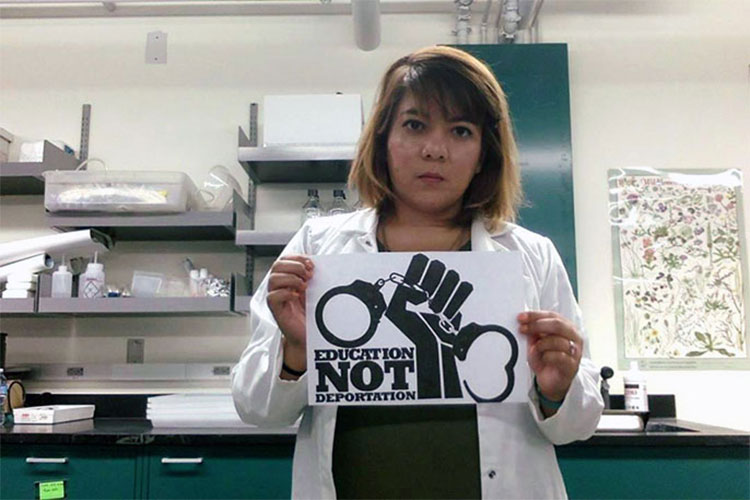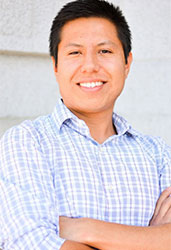Aspirations on hold, UC students await court ruling on DACA
Ten students tell their stories in court documents filed as part of UC's lawsuit to block the program's repeal

November 3, 2017
Mitchell Santos Toledo graduated from UC Berkeley with Highest Distinction in Legal Studies in 2016 and is now at Harvard Law School. As an undergraduate, he had never been comfortable publicly sharing his immigration status. After being selected class valedictorian, he decided the time was right.
“With my family in the audience, I finally told all of my classmates that I was a DACA recipient. This speech was for my parents, and it was a proud and emotional moment for our family.”
Then came September 2017, and the unexpected bombshell that the Trump administration would end the Deferred Action for Childhood Arrivals program by March 2018.

Mitchell Santos Toledo
On behalf of students like Santos Toledo, UC has sued the federal government to keep DACA going, and on Wednesday (Nov. 1) asked a federal judge to keep it operating while legal motions proceed.
UC’s DACA students come from a wide range of countries — Canada, Mexico and Kenya, among them — yet they have similar stories to tell: the despair of learning that their immigration status might keep them from having the same academic opportunities as their classmates; anxiety about whether their DACA application would be used against them; and the relief, financial and psychological, that has come from the protections the program has provided.
“Looking at the (DACA) form, it felt like I would be giving the government all the information it needed to build a case against me and possibly my family,” said Santos Toledo, “I waited for a few months to see what happened to other people who applied. The risk seemed big but so did the benefits. I finally decided to apply.”
In addition to providing important practicalities, like eligibility for a driver’s license and work permit, DACA has provided a strong sense of safety and belonging, Santos Toledo said.
Now, he wonders if going to law school was a mistake. His work authorization through DACA will expire in the middle of his second year, leaving him unable to pay off his student loans or get the experience he needs to land a job after graduation.
After having worked his way from community college, to UC Berkeley to Harvard Law, it is a harsh turn of events.